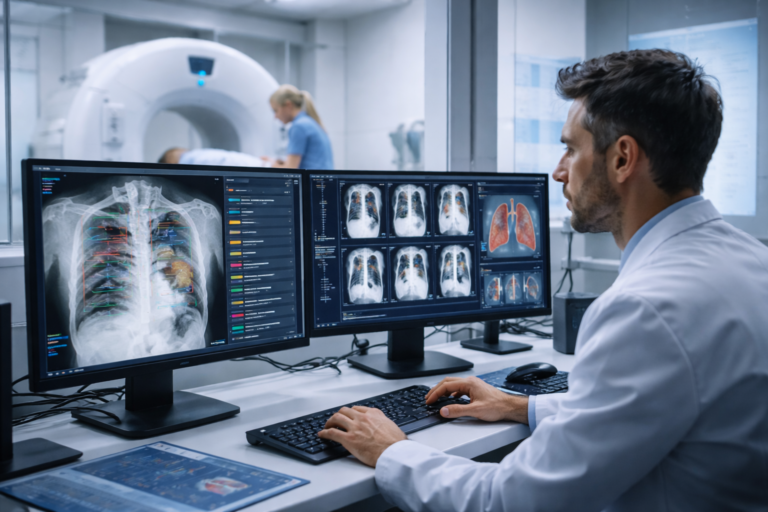
BrightHeart, an innovator in AI technology for obstetrics and pediatric cardiology, has received FDA 510(k) clearance for its first AI-driven software, which aims to revolutionize prenatal ultrasound evaluations of the fetal heart. This breakthrough comes at a critical time, as congenital heart defects (CHDs) remain the most common type of birth defect, affecting about 1 in 100 newborns.
Fetal heart ultrasounds are crucial for detecting CHDs, but missed or delayed diagnoses can have serious consequences. BrightHeart’s AI technology assists clinicians in identifying signs of CHDs early, improving detection accuracy even in resource-limited settings. The software also helps confirm normal findings, providing reassurance for expectant parents.
“Fetal heart assessments are some of the most technically challenging aspects of prenatal care,” said Cécile Dupont, CEO of BrightHeart. “Our AI tool not only helps detect abnormalities earlier but also strengthens clinicians’ confidence in confirming normal results.”
The software integrates seamlessly into existing medical workflows, streamlining the evaluation process, reducing time, and improving accuracy—critical in today’s resource-constrained healthcare environments.
BrightHeart was founded just two years ago by pediatric cardiologists Dr. Marilyne Levy and Dr. Bertrand Stos, and the company has moved quickly from concept to FDA clearance. “Achieving this milestone in such a short time is a testament to the power of our team and the potential of AI technology,” said Dupont.
With FDA clearance secured, BrightHeart is preparing for its commercial launch across the U.S., aiming to enhance prenatal care by addressing challenges like workforce shortages and resource limitations.
Michael Butchko, Chairman of BrightHeart, added, “Our technology is positioned to make a meaningful impact on prenatal care, improving both outcomes for expectant families and the efficiency of healthcare systems.”
Q1: How does BrightHeart’s AI software improve the detection of congenital heart defects (CHDs) compared to traditional methods?
A1: BrightHeart’s AI software enhances the detection of CHDs by automating and refining the ultrasound evaluation process, allowing for more accurate identification of potential abnormalities. Unlike traditional methods that rely solely on the skill of the clinician, the AI tool assists in detecting even subtle signs of CHDs and helps confirm normal findings, reducing the risk of misdiagnosis.
Q2: What role does AI play in addressing the challenges of resource-limited healthcare settings, especially in prenatal care?
A2: AI plays a critical role in addressing the challenges of resource-limited settings by automating complex tasks like fetal heart evaluations. This reduces the burden on overworked sonographers and clinicians, improves diagnostic accuracy, and ensures that even in areas with fewer specialists, patients still receive high-quality prenatal care. AI helps make advanced diagnostic tools more accessible and efficient in such environments.
Q3: What are the next steps for BrightHeart after receiving FDA clearance, and how will they scale their operations?
A3: After securing FDA clearance, BrightHeart plans to launch its AI technology in the U.S. market. The company will focus on scaling operations, entering partnerships with hospitals and clinics, and demonstrating the effectiveness of its technology. The goal is to make its solution widely available, improving prenatal care outcomes and addressing critical challenges like workforce shortages in obstetrics.




